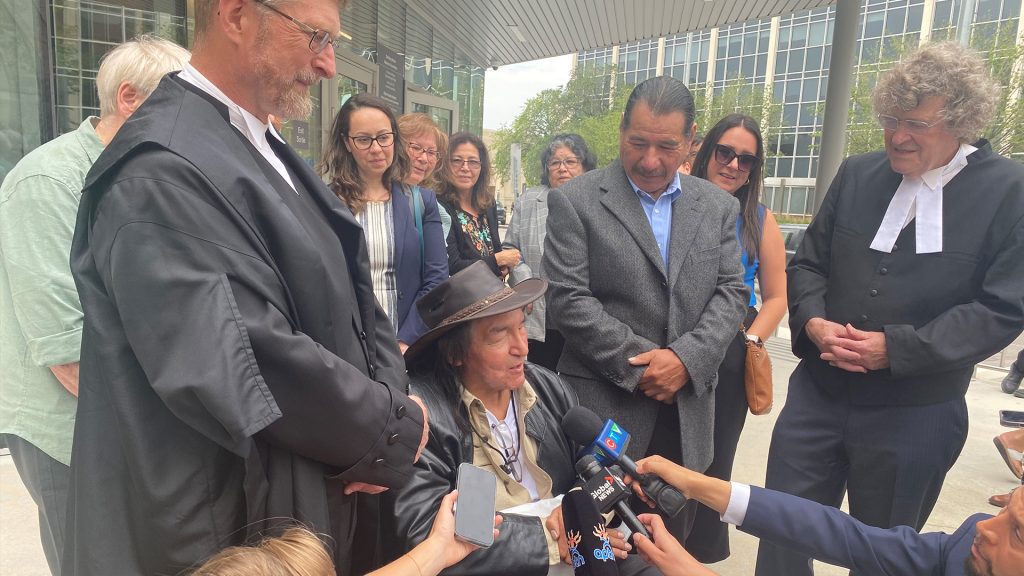
Allan Woodhouse answers questions as Brian Anderson looks on. Photo: Kathleen Martens/APTN News
The half-century it took two First Nations men to overturn their murder convictions is the longest wait in the country so far, says a founder of the Canadian Registry of Wrongful Convictions.
“That is a record,” said University of Toronto law professor Kent Roach, who unveiled the registry he developed with law students earlier this year.
“They are the 17th and 18th Indigenous people on the list now.”
To date, the registry contains the names and cases of 89 wrongly convicted people who received a remedy through the courts. More than a dozen exonerees are Indigenous peoples.
Brian Anderson and Allan (A.J.) Woodhouse, who are now in their late 60s, were acquitted July 18 of second-degree murder and declared innocent. Both men had been out of prison on parole.
Confessions
The Crown prosecutor told Court of King’s Bench Justice Glenn Joyal the men’s confessions to killing a 41-year-old restaurant worker were falsified by Winnipeg police officers.
Woodhouse was arrested alongside his brothers, Russell and Clarence, who were convicted of manslaughter and second-degree murder, respectively. All four men were from the Pinaymootang First Nation, 240 km northwest of Winnipeg.
Russell has died, said James Lockyer, one of two Innocence Canada lawyers who represented the exonerees. But Clarence is unaccounted for.
Lockyer said Innocence Canada would like to overturn Clarence’s conviction if he can be located.
Read More:
Two Indigenous men acquitted of murder after 50 years
Two men wrongfully convicted 50 years ago speak out about justice system
The non-profit group has “no doubt” more Indigenous men and women are doing time in Manitoba and Saskatchewan despite being not guilty, Lockyer added.
“That’s our primary concern, people sitting in jail for crimes they didn’t commit because of systemic racism,” he told a next-day news conference where Innocence Canada was joined by Indigenous leaders in calling for a review of murder cases involving Indigenous peoples.
“We cannot allow the story of Mr. Anderson and Mr. Woodhouse to be repeated,” said Cathy Merrick, grand chief of the Assembly of Manitoba Chiefs, at the news conference.
The assembly represents 62 of 63 First Nations in Manitoba.









